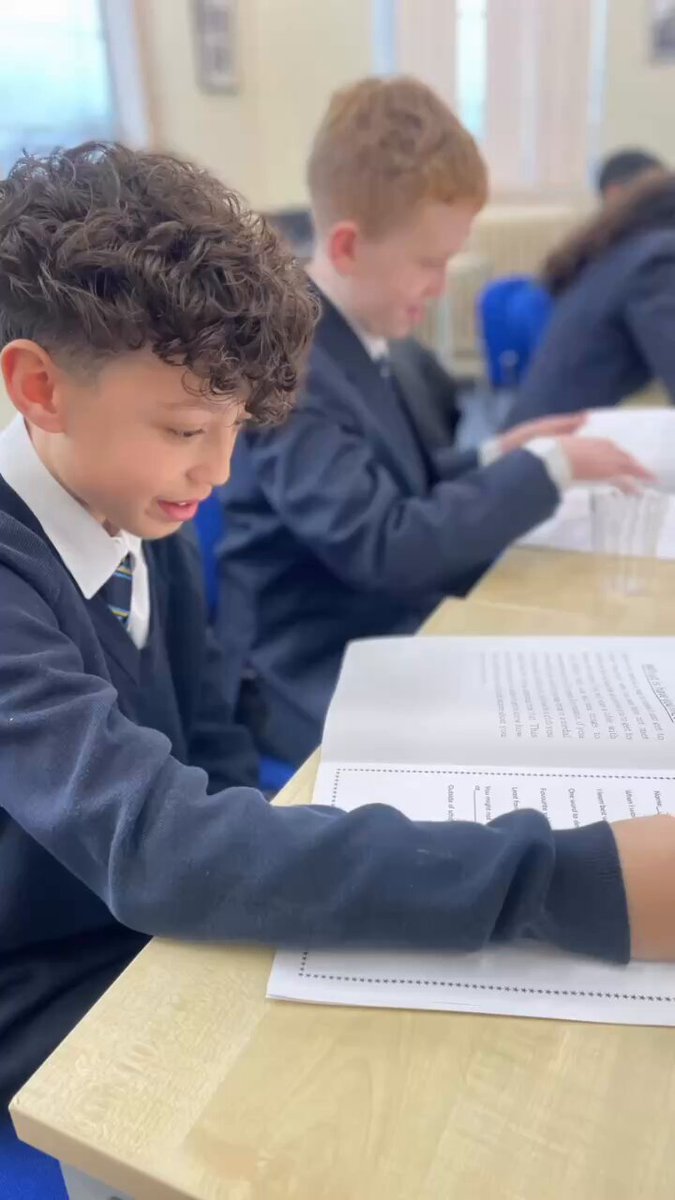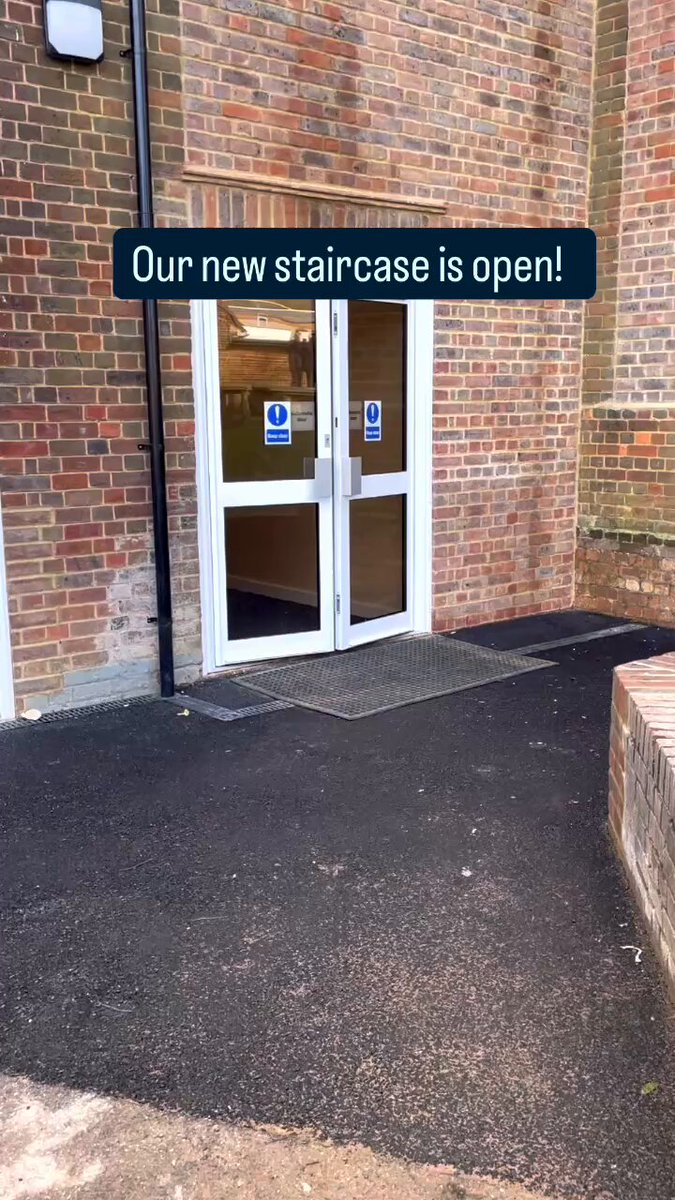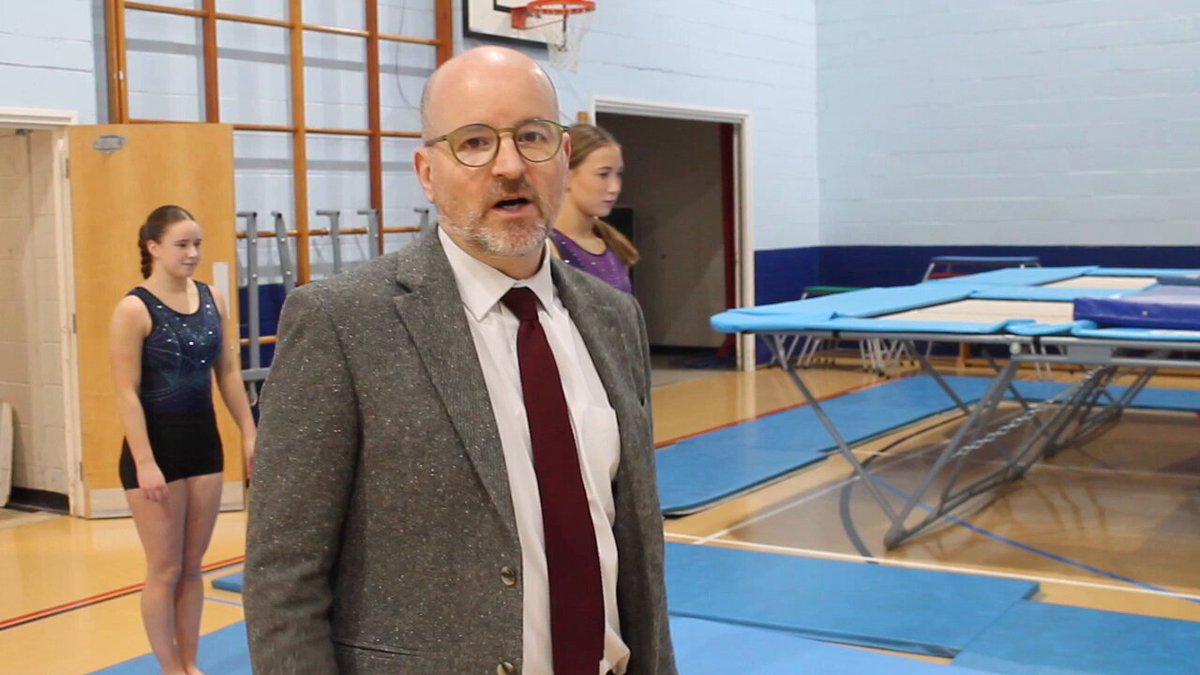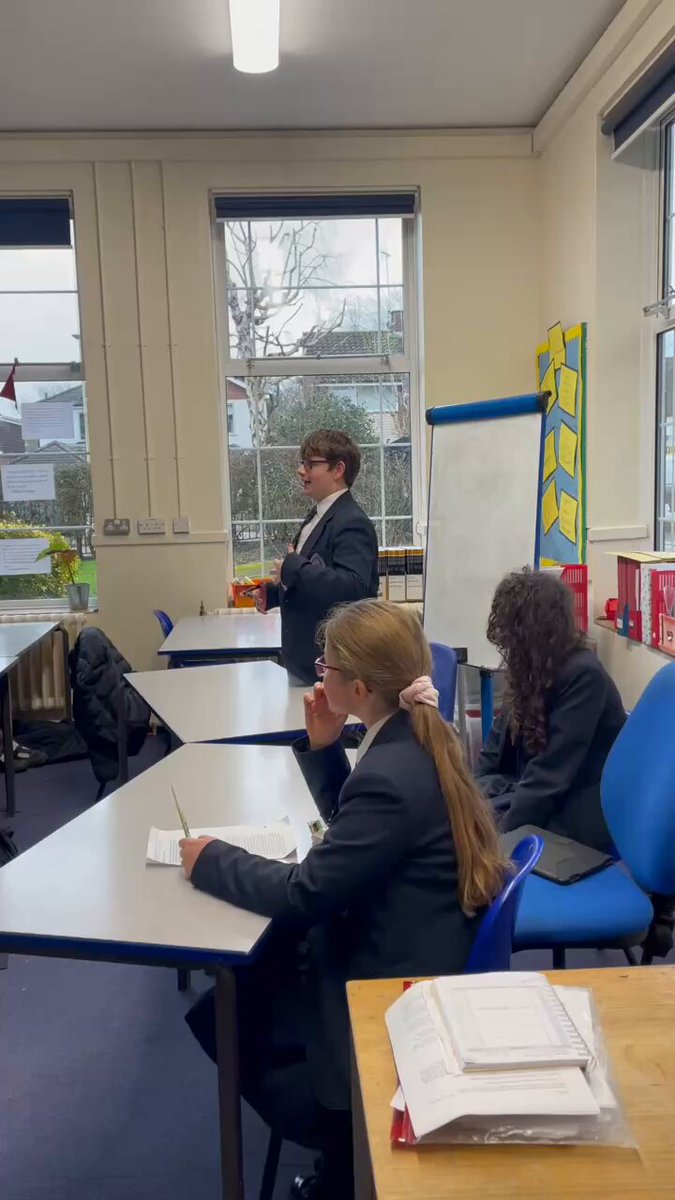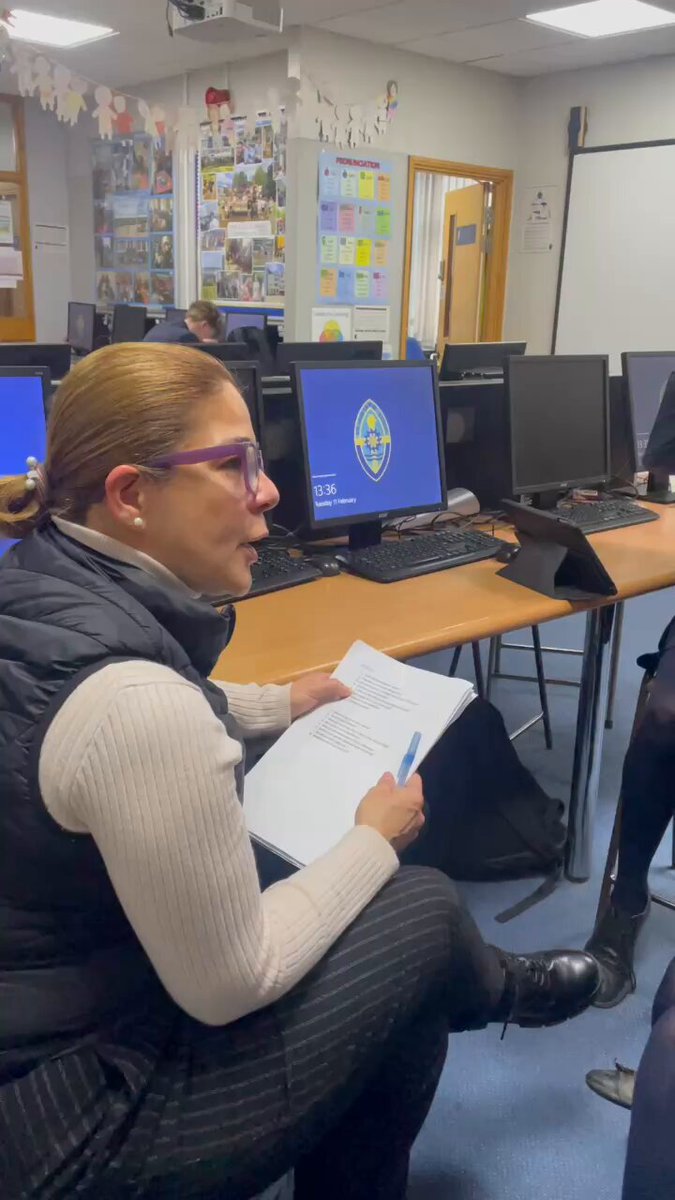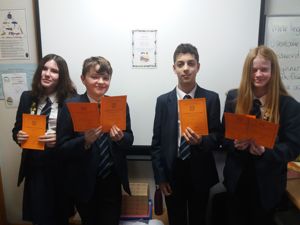More Able and Gifted & Talented Students
At Sir John Lawes School we believe that all children are entitled to an education that will enable them to develop their full potential, be that intellectual, physical, aesthetic, creative, emotional, spiritual or social, finding appropriate challenge in our learning environment.
All students have individual needs, making personalised learning a priority in our teaching and learning.
Sir John Lawes School is committed to providing a sufficiently challenging curriculum for all its students. In addition, we will provide opportunities to identify those who are more able and nurture their individual abilities.
All students have an entitlement to the following:
- Staff commitment and training to develop students’ full potential at all times.
- Lessons that stimulate, engage, challenge, inform, excite and encourage through partnership and dialogue with teachers and other students and active participation in the lesson.
- Courses that lead to examinations and accreditation.
- Skilled, well-prepared and informed teachers who have a perspective and understanding of whole school needs, problems and policies, especially those concerning issues related to those students identified as more able.
- An entitlement beyond subject teaching, including preparation for adult life and preparation for the world of work. This should include extra-curricular activity, personal and social education, careers guidance and counselling, extramural experiences including visits to local industry, work experience and community service.
Contact with parents
There are a number of formal and informal ways that we maintain contact with parents. These include:
- An initial letter is sent home following the inclusion of a student as MASt and/or Gifted and/or Talented in the MASt and Gifted and Talented Register
- An Open Evening is held during each Summer term showcasing the work done during the year. Parents have the opportunity to discuss MASt and Gifted and Talented provision with representatives of each Faculty, discuss student concerns with Head of MASt and Gifted & Talented, Mrs. Brining, and have any questions answered
- Mailings are sent home to inform parents of any new events, master classes or courses being offered
- These dedicated pages of the school website hold information on the different aspects of the MASt and Gifted and Talented programme
- Items in the SJL Newsletters celebrate the achievements of our MASt and Gifted and Talented cohort and keeps parents informed of forthcoming events
- Parents are periodically asked for feedback.
| Faculty | Name |
|---|---|
| Art | Alina Pullinger / Stephanie Gibson |
| Business and Economics | Ailish Dunne |
| Computing | Sophie Scott |
| Design and Technology | Joe James |
| Drama | Rachel Woolrych |
| English / Latin | Emma Brining |
| Geography / World Challenge | Alex Atkins |
| History | Simon Allen |
| Library | Chloe James |
| Life Skills | Phil Evans |
| Maths | Audrey Aspland |
| Media | Darren Thomson |
| MFL | Sam King |
| Music | Lizzie Hastings-Clarke |
| PE | Michael Bowe |
| Psychology | Amy Speechley |
| Sociology | Tom Gilfeather |
| RE | Tom Mason |
| Science | Greg Brennan |
Identification and monitoring
What do we look for?
- Intellectual ability or talent
- Specific academic aptitude
- Creative and productive thinking
- Leadership ability
- Talent for visual and performing arts
- Psychomotor ability.
More Able Students Register
Year 7 students sit Cognitive Ability Tests (CATs) in their first term. Those achieving an average CATS stanine of 8 or more are identified as More Able Students.
They are added to the More Able Students (MASt) and Gifted and Talented Register and parents are informed by letter. These students will always be identified as MASt until the end of Year 11. In Sixth Form, More Able Students are identified as the top 10% in their year group using their GCSE Average Points Score.
The Cognitive Abilities Test (CAT4) is the most widely used test of reasoning ability in the UK and has been fully standardized on 25,000 UK pupils. The suite of tests has been developed to support schools in understanding pupils’ developed abilities and likely academic potential. Results from CAT4 can help in intervention, monitoring progress and setting targets for future attainment.
Aimed at pupils between 6 to 17+ years, CAT4 assesses a pupil’s ability to reason with and manipulate different types of material through a series of Verbal, Non-Verbal, Quantitative and Spatial Ability tasks. Together, these four tests provide teachers with a comprehensive profile of a pupil’s reasoning abilities, and as such the core abilities related to learning.
The resulting data can then be used to identify a pupil’s strengths, weaknesses and learning preferences, providing accurate and reliable information that is essential for personalized learning. The more we know about a pupil, the better position we should be in to offer a learning environment and ways of teaching and learning that allow pupils to maximize their potential. Information about a pupil’s reasoning ability will be key to many teaching decisions and is considered alongside attainment data and other factors known to impact on learning, such as attendance and attitude.
Why does SJL use CAT4?
- Helps pinpoint gifted and talented pupils and underachievers
- Supports schools in monitoring progress and setting targets for future attainment
- Identifies spatial thinkers who are likely to excel in STEM subjects (Science, Technology, Engineering and Maths)
- Provides indicators of outcomes at KS3, KS4, and KS5
- Reports support communication with parents, pupils, teachers and senior leaders.
Gifted and Talented Students
Gifted Subjects
Business Studies, Computing, Economics, English, Financial Studies, History, Geography, Latin, Mathematics, Modern Foreign Languages, Psychology, Religious Studies, Science and Sociology.
Talented Subjects
Art, Critical Thinking, Dance, Design and Technology, Drama, Food Technology, Leadership, Graphics, Life Skills, Media, Music, Photography, Physical Education, Product Design and Textiles.
There is a formal yearly review and update of the Gifted and Talented Register in the Autumn term for Years 8 – 13 and in the Spring term for Year 7. Students are continually monitored by teaching staff, who nominate students for inclusion in the MASt and Gifted and Talented Register for outstanding performance in their subject area, or in any other activity staff are aware of. This includes nominations by the Pastoral team (Form Tutors and Heads of Year) following outstanding achievements in extra-curricular and/or super-curricular activities.
Parents of these students are written to in the Autumn term notifying them of their child’s Gifted and/or Talented subject nomination(s) for that academic year. These students would receive differentiated work in their nominated subjects stretching and challenging them further. If a student underachieves subsequently over the course of the academic year, their teacher can decide not to nominate them for inclusion in the following academic year’s Register.
It would be expected that MASt students should have a larger number of Gifted and Talented nominations than other students.
Provision within the curriculum
Teaching and learning
Within the curriculum, we have been working to extend the expertise of our staff in providing a rich and varied range of activities specifically designed to extend our more able students. Teaching strategies have been developed to include different intelligences and learning styles, extending the provision in response to what the students themselves have told us helps them to learn.
Setting
- Mathematics - setting in years, starts by October in Year 7; sets are continually monitored and adjusted as appropriate.
- Science - all year groups are set, starting in the first half term of Year 7; sets are reviewed twice a year.
- English - there is setting from Year 8 to Year 11.
Options
Mathematics:
- Curriculum acceleration starts in Year 7, more able students start GCSE course in Year 9.
- Occasionally individual programmes are designed for particularly outstanding students
- Further Maths at A level.
Science:
- Able students are offered separate GCSE courses in Biology, Physics and Chemistry.
MFL:
- Year 10 - Able linguists study two languages.
- Students who speak a second language are supported in taking the GCSE through the school.
Resources:
- Advanced texts and equipment have been provided for all faculties.
- Curriculum-related extension courses and master classes are regularly offered.
In addition to the above, all faculties include MASt and Gifted & Talented provision within their schemes of work.
Chess Club
Chess Club meets every lunchtime Monday to Friday from 12.50pm – 1.25pm led by Mrs Brining, Mr Allen and Sixth Formers - M5 for Years 7 to 9 and Z3 for Years 10 and 11.
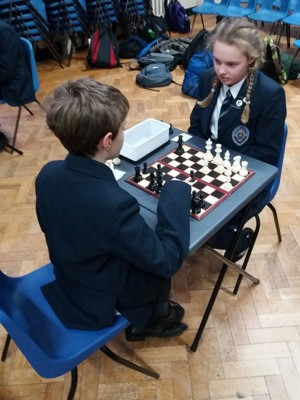 |
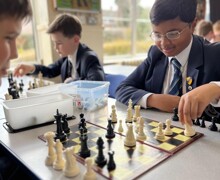 |
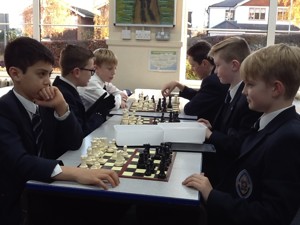 |
Chess:
- brings people together. Players can have big age differences and still enjoy a game together
- helps you improve your problem solving skills
- develops your spatial skills. You are constantly thinking of the opponent’s moves, thinking 2, 3 or moves ahead – a transferable skill to other sports
- improves memory
- involves both sides of the brain. A study demonstrated that both the left (the more logical) and right (more creative) sides of the brain are exercised during a game of chess
Tom in Year 11 created this beautiful chess board in Design and Technology!
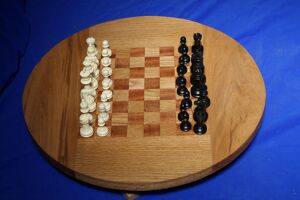 |
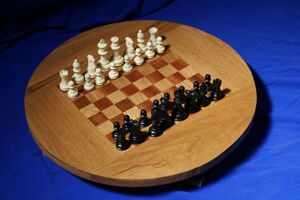 |
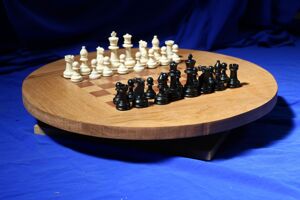 |
|
![]()
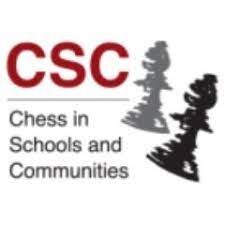 Everyone welcome!
Everyone welcome!
Go Club
Go Club meets every lunchtime Monday to Friday from 12.50pm – 1.25pm led by Mrs Brining, Mr Allen and Sixth Formers - M5 for Years 7 to 9 and Z3 for Years 10 and 11.
The ancient Chinese game of Go is one of the oldest board games in the world and flourishes in Japan and Korea also. More than 60 countries now compete in the annual World Amateur Go Championships.
More information can be found at the British Go Association which supports and runs an on-line league and UK tournaments, and they are offering a free one hour online teaching session to those joining for the first time.

British Go Associations tutor Mr Cockburn is occasionally available to teach and advise students how to play and improve their game. We became UK School Champions in 2019!
Sir John Lawes and its Go Club feature in the Spring edition of the British Go Journal which records the second Harpenden Go Tournament held earlier this year. Twenty six players from across the South East enjoyed the Go with congratulations to Oliver Bardsley winning two of his games. Subsequently, the Maidenhead Tournament saw Oliver winning three games and several prizes! Congratulations to the Sir John Lawes Go Club who were the best school team at this tournament!
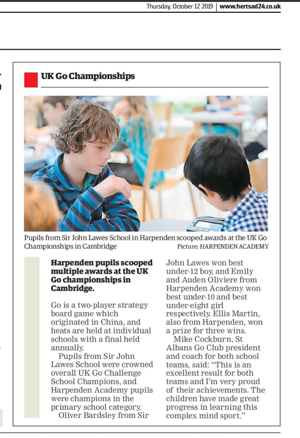 |
|
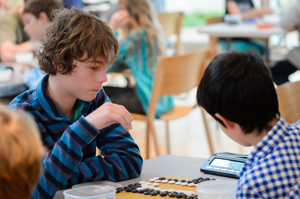 |
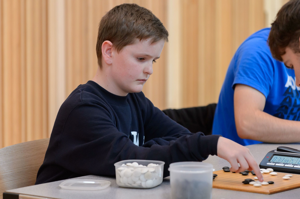 |
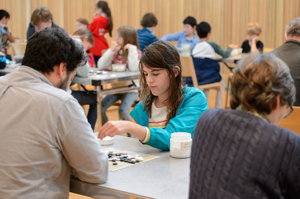 |
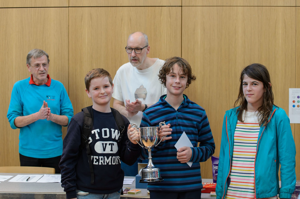 |
Try these strategic Go puzzles: https://britgo.org/covers/psmith
Everybody welcome!
Mahjong Club
Mahjong Club meets every lunchtime Monday to Friday from 12.50pm – 1.25pm led by Mrs Brining, Mr Allen and Sixth Formers - M5 for Years 7 to 9 and Z3 for Years 10 and 11.
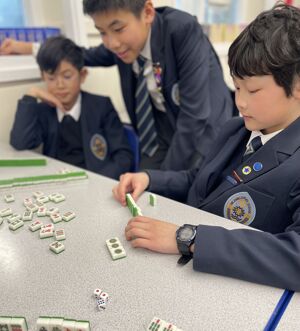 |
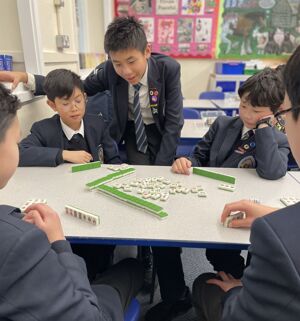 |
Mahjong is a strategy tile-based game that was developed in the 19th century in China. It’s a social game that requires precision, skill, strategy and luck.
Mahjong requires four players, 144 tiles and two dice to roll. The aim is to make matching sets and pairs of tiles.
To win Mahjong a player must form four sets and one pair. When you know you have a winning hand, you shout ‘mahjong!’
Latin Club
Latin Club (SOCIETAS LINGUAE LATINAE) meets in M8 every Tuesday from 3.30pm – 4.45pm.
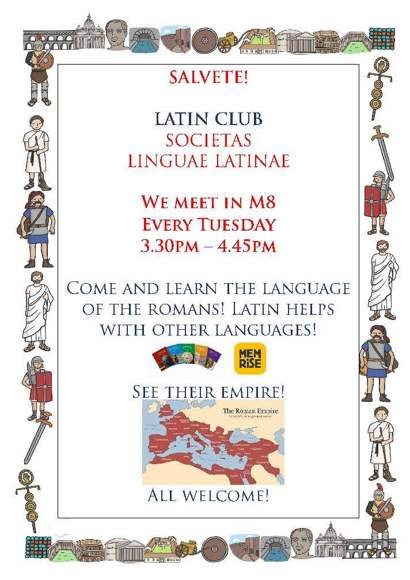
We follow the Cambridge Latin Course and Memrise which students can also access from home. This is supported by e-learning and text books. There are 12 levels in Cambridge Latin Course Book 1 and 19 levels in Memrise. There is a Cambridge Latin Course assessment every four levels. Students have a vocabulary book each and Mrs Brining, and Governor Mrs Montgomery support learning.
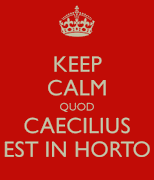 |
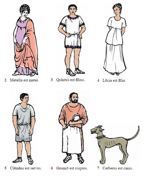 |
|
Year 9 Latin students with their Cambridge Latin Course certificates having passed Levels 4 and 8 |
|



